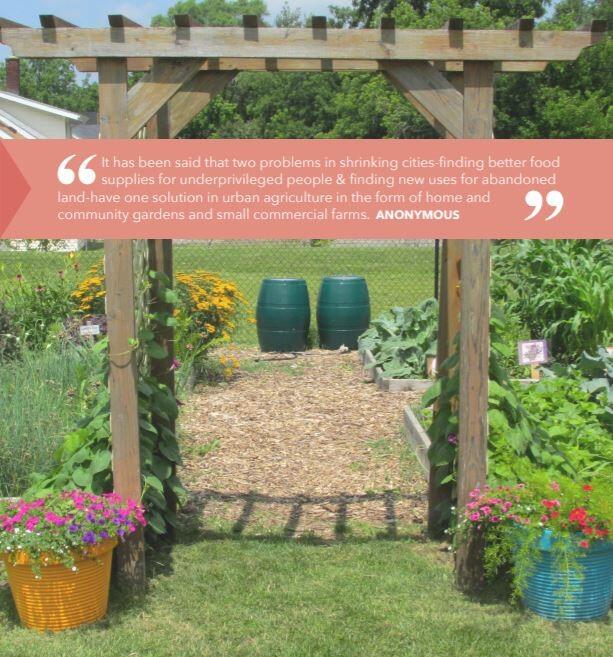 Edible Flint grew out of efforts to address issues of food insecurity and challenged access to healthy food, increasing rates of health problems resulting from inadequate nutrition, and increasing amounts of abandoned property and vacant land in Flint, Michigan. It was created by early partners like the Ruth Mott Foundation, the Genesee County Land Bank, Michigan State University Extension, Genesee Conservation District, and countless others interested in collaboration and networking to promote urban gardening.
Edible Flint grew out of efforts to address issues of food insecurity and challenged access to healthy food, increasing rates of health problems resulting from inadequate nutrition, and increasing amounts of abandoned property and vacant land in Flint, Michigan. It was created by early partners like the Ruth Mott Foundation, the Genesee County Land Bank, Michigan State University Extension, Genesee Conservation District, and countless others interested in collaboration and networking to promote urban gardening.
One of the first efforts of the group was a garden tour that featured vegetable gardens worked by people in Flint communities who cultivated gardens to dig in and establish roots in their neighborhoods. Some gardeners focused on feeding their families, some shared with neighbors, and others helped to feed the community through donations. Edible Flint has hosted 11 Food Garden Tours since those early days.
The next effort involved creating and sharing a Garden Starter Kit that included seeds, transplants, and instructions for cultivating a 1500 sq. ft garden. To date, Edible Flint has sold more than 2,600 garden kits and has offered tilling (263 gardens), soil tests (600 soil tests), and delivery of compost (~2800 yards of compost) to support neighborhood gardening efforts. Edible Flint also sold hose filters and rain barrels, reducing costs in the wake of the water crisis in Flint. The program has supported more than 1,300 gardens since 2009.
One of Edible Flint’s more impactful programs offers training to gardeners interested in meeting their neighbors and cultivating the soil. The training program has graduated more than 200 gardeners. This year, the program will focus on helping people connect the health of their soil with their personal and family health. In 2018, Edible Flint received the donation of land from an established urban farm and has built an outdoor learning space on the property to host programs and classes at the site. The Educational Farm will offer an opportunity for people from Genesee County and beyond to learn about the opportunities of urban agriculture.
Edible Flint is looking ahead to the next horizon to meet its mission and continue supporting residents in growing and accessing health food. To help in this effort, Americana awarded a grant in November 2019 that will help the organization attract new participants, integrate themes throughout the programming, and recruit new producers at every scale (home gardeners to produce marketers). We look forward to learning more about how Edible Flint incorporates education and training on soil health into its programs and promotes sustainable agriculture in Flint’s urban environment. You can find more information about Edible Flint at its website.
